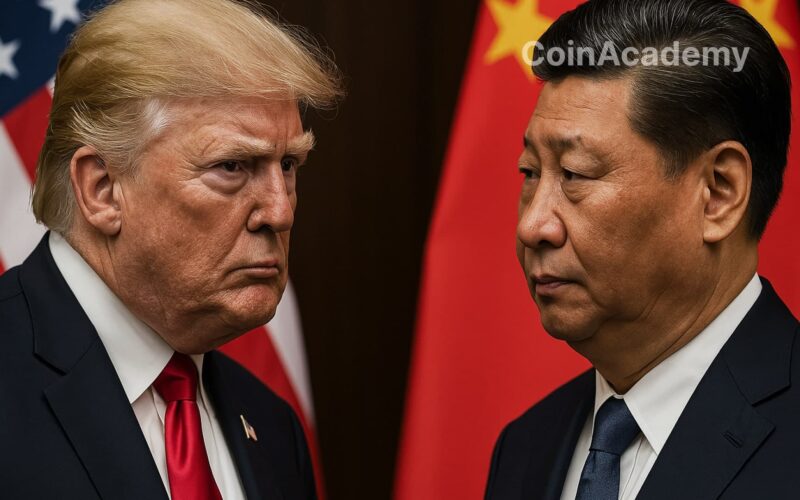China Increases Trade War Tensions with Additional Tariffs
China has announced the immediate imposition of an additional 50% tariff on American imports, in addition to the existing 34% tariff. This measure will take effect on Thursday, following a new punitive tax imposed by the United States. With these increases, the total tariffs on American products destined for China will reach 84%.
This retaliatory move will directly impact strategic sectors such as industrial machinery, semiconductors, and agriculture. According to several economists, China’s total tariffs could exceed 100% when considering all the taxes already imposed on energy, agricultural products, and other goods.
Peking Confirms Unprecedented Escalation of Trade
In a strong statement, the Chinese State Council Customs Tariff Commission accused the United States of persisting in their error by escalating the trade tensions, denouncing a serious violation of the principles of multilateral trade. Despite the magnitude of the tensions, there are no active negotiation channels at this stage.
Unlike other Asian countries such as Japan or South Korea, China has not engaged in any dialogue with Washington. And on the US side, the Trump administration has not taken any initiative to resume discussions. The total absence of communication between the two capitals fuels growing concerns in the American and Chinese business world.
Targeted Retaliation against American Companies
Peking has also hardened its stance on the technological front. Twelve additional American companies have been added to the Chinese export blacklist, and six others have been added to the list of entities considered ‘unreliable’. Among them are defense-related drone manufacturers like Insitu (a Boeing subsidiary), as well as groups specialized in laser technology like American Photonics or Novotech.
These decisions directly threaten the ability of these companies to operate in China or source from the local market, further fragmenting global value chains.
A War of Attrition with Incalculable Consequences
Fred Neumann, Chief Economist Asia at HSBC, sees the confrontation between Washington and Peking as a boxing match:
We are only in the first round. Each side is testing the endurance of the other, but the damage will accumulate and force both camps to seek arbitration.
This outcome is still distant, but some deem it inevitable as the impacts are felt in the real economy. This trade war is hitting China during an internal slowdown marked by a persistent real estate crisis, while pushing the United States towards an increasingly protectionist stance.
Towards a Rebalancing of Global Rules?
In the midst of these tensions, the European Union Chamber of Commerce in China has pointed out the American drift, noting that Washington is ‘abandoning the foundational principles of global trade’. It sees this as an opportunity for Peking to become a pole of stability capable of attracting investors in search of predictability.
However, to achieve this, China itself must resist a closed-door approach and remain willing, despite appearances, to reopen dialogue.




